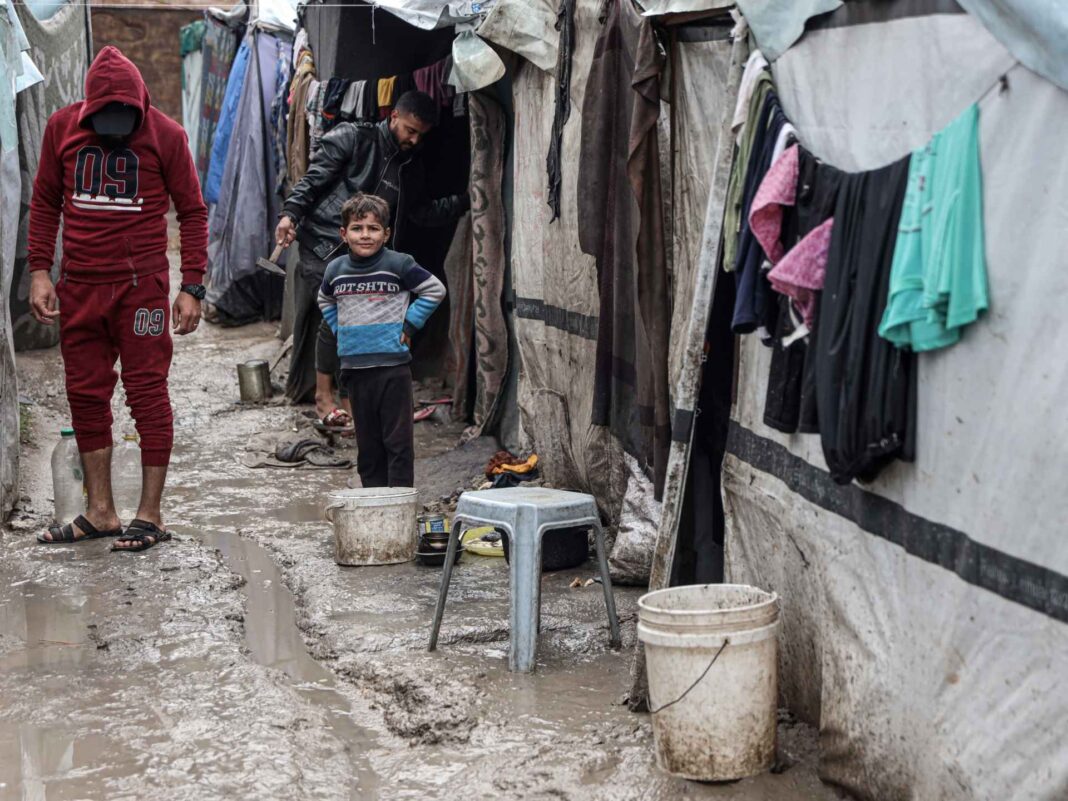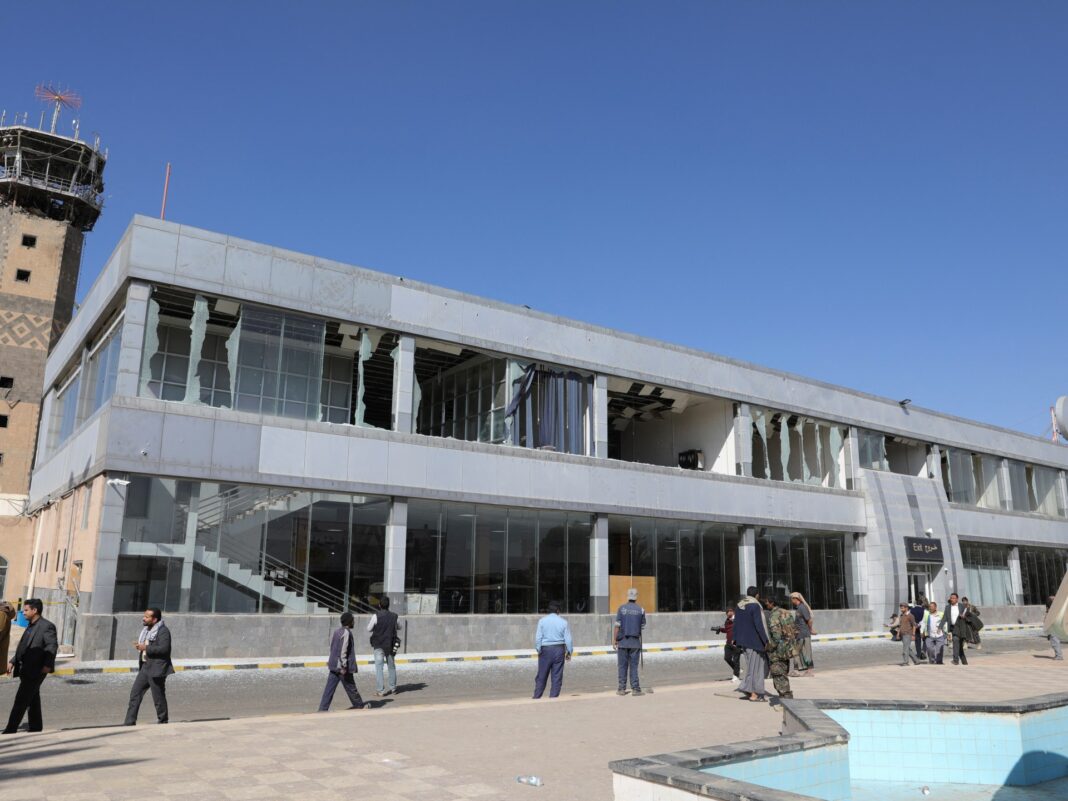Palestinians in Gaza are entering the new year as defenceless and beleaguered as the last.
Israel’s war on the enclave continued into 2024, killing 23,842 people and wounding 51,925 during this year alone, driving the grisly official death toll to 46,376, according to the Gaza Health Ministry.
Israel has used siege and starve tactics, as well as scorched earth bombardment, drawing accusations that it is committing genocide, from rights groups and United Nations legal bodies.
All documented Israel’s systematic targeting of hospitals, displacement shelters, aid workers, journalists and so-called safe zones, which are often anything but.
In northern Gaza, the Israeli army has imposed a full and suffocating siege in an attempt to starve fighters and push out civilians, in what has been called “ethnic cleansing”.
These tactics violate international law and are creating the conditions to kill a people “in whole or in part”, matching the definition of genocide in the UN’s Genocide Convention, rights groups say.
“This last year has been very dark for us. How can I describe it in any other way? It’s been more than torturous,” said Eman Shaghnoubi, 52, from Deir el-Balah in Gaza.
“We have moved from one humiliation to another,” she added, remarking on the perpetual displacement of Palestinians in the enclave.
Within Gaza
Israel has rendered 34 hospitals in Gaza “nonfunctional” and forced 80 health centres to shut down entirely, according to the Gaza Government Media Office.
In the last few days, Israeli forces stormed the only remaining major hospital in Gaza’s devastated north, ejecting staff and patients before setting the medical facility on fire.
Torrential rain is currently lashing the tent villages that stand in place of many of Gaza’s towns and cities, with deaths from hypothermia rising as freezing temperatures continue to flatline.
Shaghnoubi, who has six boys and two girls, said that her children are struggling to survive in the cold and that her small tent does not protect the family from the pouring rain.
“My children sleep on soaked bedding at night,” she told Al Jazeera.
Shereen Abu Nida, 40, also said that she and her four children are coping with hardship due to the terrible living conditions brought on by the war. Worst still, her husband was abducted by Israeli forces about a year ago, leaving her to care for her children all alone.
“I have had to go through this whole year alone, all by myself,” she said, her voice quivering.
Musa Ali Muhammad al-Maghribi, 52, added that his family have little hope for the future.
He said his nine children are ill and he can’t find medication, nor is there enough food or clean water for his family, an ordeal that most of Gaza’s 2.3 million people face.
“[Israel] has destroyed us,” he told Al Jazeera. “Every day, we just hope to die.”
Netanyahu extends the fight
Despite the extreme hardship, Israeli Prime Minister Benjamin Netanyahu is showing no sign of halting the onslaught.
Efforts at mediating some form of ceasefire, which have been continuing throughout much of the conflict, have floundered in the face of what many, including United States President Joe Biden in June, have slammed as political self-interest on the part of the Israeli prime minister.

Accusations of exploiting the war on Gaza for personal gain have centred upon Netanyahu’s attempts to deflect from his ongoing trial on charges of bribery, fraud and breach of public trust, which he denies.
In addition, the prime minister’s corruption trial suggests that Netanyahu is seeking to prolong the war to distract from accusations of negligence or incompetence during the Hamas-led attack of October 7 2023, which killed 1,139 Israelis.
Charges of opportunism have come from both within Netanyahu’s right-wing cabinet, as well as the street, where tens of thousands of people continue to rally in support of a deal that would see the captives taken during the Hamas-led attack released.
International impotence
The international community has failed to halt – or mitigate – the carnage in Gaza largely due to the US’s unqualified political and military support for Israel’s war on Gaza.
In addition to the more than $20bn in aid provided to Israel since the war began, the US has torpedoed diplomatic efforts within the UN to end the war, including suppressing recent reports of the potential famine under way in northern Gaza.
In January, the International Court of Justice ordered Israel to do all it could to prevent any act that could be considered genocide. Despite this, rights organisations based in Palestine and internationally, including Amnesty, have concluded that Israel is actively embarked upon a campaign of genocide within the Strip.
Similar international action has also been taken against both the Hamas and Israeli leadership. In November, the International Criminal Court (ICC) issued arrest warrants for Netanyahu and former Defence Minister Yoav Gallant, as well as Hamas leader Mohammed Deif.
Israel claims to have killed Deif in July. Netanyahu and Gallant remain wanted for war crimes and crimes against humanity.
In October, Israel defied international pressure and voted to ban the UN’s Relief and Works Agency (UNRWA), widely acknowledged as one of Gaza’s principal lifelines. When the ban comes into effect in late January of next year, Gaza will lose its principal aid agency and with it, much of the network that distributes food, medicine and the infrastructure needed to sustain life.
In December, the UN General Assembly voted overwhelmingly for UNRWA’s work to continue and, for the third time, that a ceasefire be immediately reached. Despite this, Israeli strikes on Gaza have continued and the agency’s future remains uncertain.
Palestinians in Gaza such as Abu Nida just hope the war will end soon this coming year.
“This has been the worst year of my life,” said Abu Nida.
“Nobody in the world has lived through the days that we are living through,” she said.


